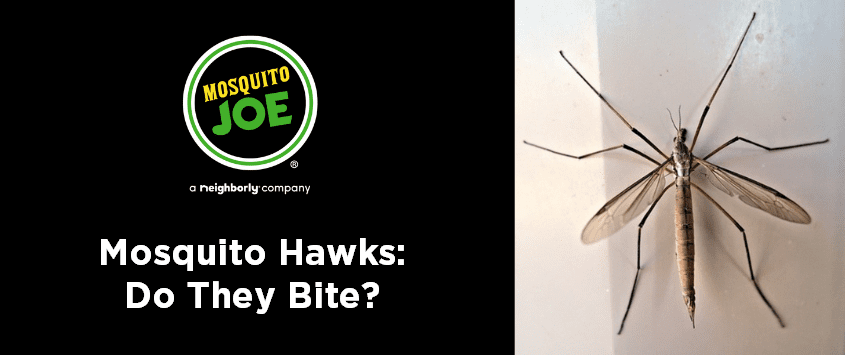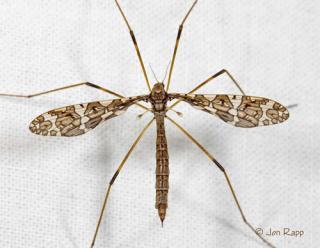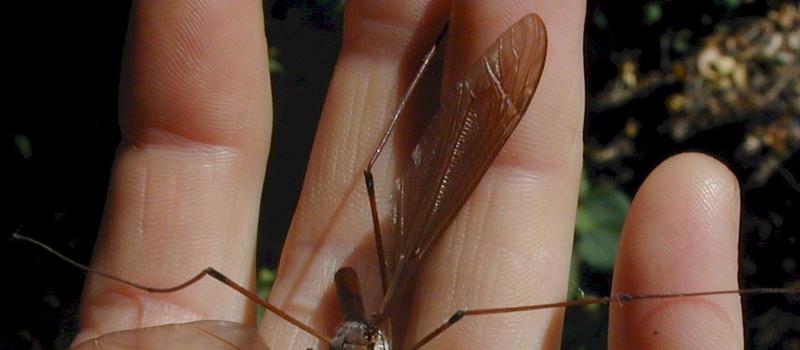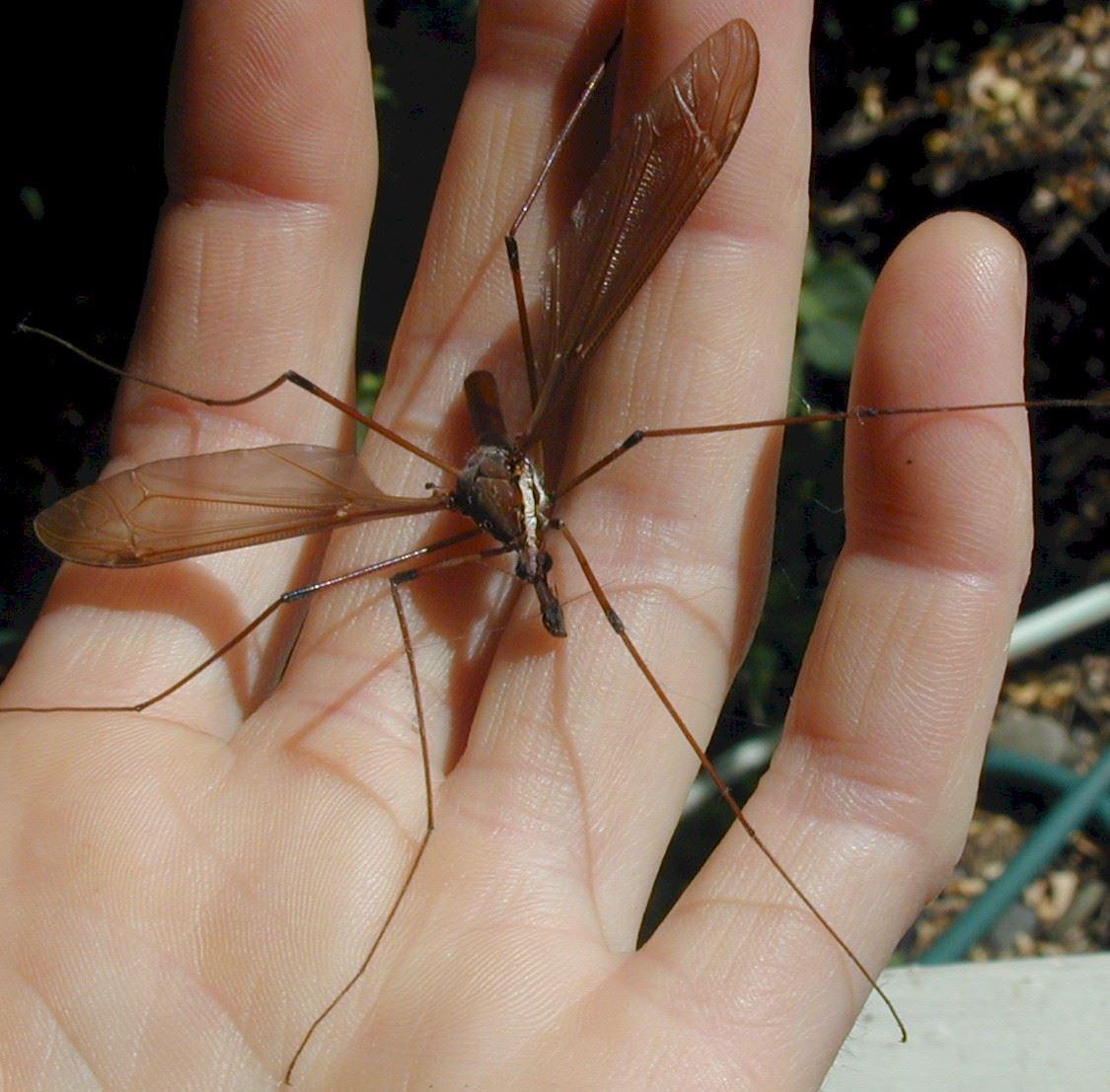Mosquito hawks, also known as crane flies, serve as a food source for birds and insects. They contribute to the ecosystem by aiding in soil health and biodiversity.
Although often mistaken for mosquitoes, mosquito hawks do not actually eat mosquitoes. Instead, they play a crucial role in the food web, being consumed by various predators. These harmless insects help maintain a balanced ecosystem by providing sustenance for other wildlife and aiding in natural pest control.
Despite their misleading name, mosquito hawks are beneficial creatures that support the overall health of the environment.
The Identity Of Mosquito Hawks
Mosquito hawks, also known as crane flies, serve as a food source for birds and other insects, and contribute to soil health. Despite their misleading name, they do not eat mosquitoes and are harmless to humans. These insects play a vital role in the ecosystem as part of the food web.
Crane Fly Basics
Mosquito hawks, also known as crane flies, are often mistaken for giant mosquitoes due to their similar appearance.
The Misconception Of A Name
Despite their misleading name, mosquito hawks do not prey on mosquitoes; rather, they feed on nectar and plant matter.
Lifecycle And Habitat
Mosquito hawks, also known as crane flies, have a variety of purposes in their lifecycle and habitat. While some species are carnivorous and feed on other bugs, others feed on plants, particularly decaying grass roots. Despite their name, mosquito hawks do not actually eat mosquitoes, but they play a role in the food web as a food source for birds and other insects.
Mosquito hawks, also known as crane flies, undergo a fascinating lifecycle that contributes to the ecosystem in various ways. Understanding their development and preferred habitats sheds light on their role in the environment.
From Larvae To Adult
Mosquito hawks undergo complete metamorphosis, starting as eggs laid near water or damp soil. The larvae, often found in moist environments such as wetlands or marshes, play a vital role in breaking down organic matter, contributing to nutrient cycling in the ecosystem. After pupating, the adult crane flies emerge and primarily focus on mating and laying eggs. They are often found in grassy areas and near bodies of water, where they play a role in the food web as a food source for birds and other insects.
Regional Variations
Crane flies exhibit regional variations in their lifecycle and habitat preferences. Different species may have varying habitat requirements, contributing to their adaptability in diverse environments. Understanding these regional differences can provide insight into the distribution and abundance of mosquito hawks across different geographic areas.
Dietary Habits
Mosquito hawks, also known as crane flies, serve as a food source for birds and insects, contributing to the ecosystem’s balance. Contrary to their name, they do not eat mosquitoes but play a role in the food web.
Myth Vs. Reality
There are many misconceptions surrounding mosquito hawks, also known as crane flies. One common myth is that they are harmful or dangerous insects. However, the reality is quite different. Mosquito hawks are actually harmless to humans and do not pose any threat. Another myth is that they eat mosquitoes. In reality, mosquito hawks do not primarily feed on mosquitoes. Let’s explore their actual dietary habits.
Natural Food Sources
While mosquito hawks may not feast on mosquitoes, they do play a significant role in the ecosystem. Their natural food sources consist of various insects, small invertebrates, and organic matter. These include:
- Insects: Mosquito hawks primarily feed on smaller insects like gnats, midges, and other flying insects. They are particularly beneficial in controlling the population of these pests.
- Small Invertebrates: Mosquito hawks also consume small invertebrates such as worms, spiders, and larvae found in moist areas like gardens, lawns, and wetlands.
- Organic Matter: In addition to insects and invertebrates, mosquito hawks feed on decaying plant matter, such as the roots of grass. This helps with the decomposition process and nutrient recycling in the environment.
It’s important to note that while mosquito hawks may resemble large mosquitoes, they are not predators of mosquitoes. Their diet mainly consists of other insects and organic material.
Html Code:
There are many misconceptions surrounding mosquito hawks, also known as crane flies. One common myth is that they are harmful or dangerous insects. However, the reality is quite different. Mosquito hawks are actually harmless to humans and do not pose any threat. Another myth is that they eat mosquitoes. In reality, mosquito hawks do not primarily feed on mosquitoes. Let’s explore their actual dietary habits.
While mosquito hawks may not feast on mosquitoes, they do play a significant role in the ecosystem. Their natural food sources consist of various insects, small invertebrates, and organic matter. These include:
- Insects: Mosquito hawks primarily feed on smaller insects like gnats, midges, and other flying insects. They are particularly beneficial in controlling the population of these pests.
- Small Invertebrates: Mosquito hawks also consume small invertebrates such as worms, spiders, and larvae found in moist areas like gardens, lawns, and wetlands.
- Organic Matter: In addition to insects and invertebrates, mosquito hawks feed on decaying plant matter, such as the roots of grass. This helps with the decomposition process and nutrient recycling in the environment.
It’s important to note that while mosquito hawks may resemble large mosquitoes, they are not predators of mosquitoes. Their diet mainly consists of other insects and organic material.
Ecological Role
Mosquito Hawks, also known as crane flies, play a vital role in the ecosystem by contributing to biodiversity and serving as prey species.
Contribution To Biodiversity
- Provide food: Mosquito Hawks serve as a food source for various animals like birds and other insects.
- Biodiversity: They contribute to the diversity of species within the ecosystem.
- Balance: By being part of the food chain, they help maintain a balance in the ecosystem.
As A Prey Species
- Food source: Mosquito Hawks are prey for birds, lizards, and other insects.
- Integral role: They play an essential part in the food web, supporting various organisms.
- Contribution: Being part of the prey chain, they aid in the survival of predator species.
Misunderstood Behavior
Mosquito hawks, also known as crane flies, are often misunderstood due to their name. Contrary to popular belief, they do not actually eat mosquitoes. Instead, they serve as a food source for birds, lizards, and other insects, playing an essential role in the ecosystem.
When it comes to mosquito hawks, their behavior is often misunderstood. These insects, also known as crane flies, are frequently mistaken for mosquitoes due to their similar appearance. However, contrary to popular belief, mosquito hawks do not feed on mosquitoes or pose any significant harm to humans.
Attraction To Light
One of the reasons why mosquito hawks are often found near light sources is their attraction to light. Some species of crane flies are naturally drawn to lights, which is why you may notice them fluttering around your windows or outdoor lights at night. However, it’s important to note that this behavior has nothing to do with mosquitoes.
Interaction With Humans
Despite their harmless nature, mosquito hawks can sometimes create a nuisance when they enter human living spaces. However, it’s essential to understand that they neither bite nor sting. If you find a crane fly indoors, simply cup it gently and release it outdoors. These insects are harmless to handle and play a vital role in the ecosystem as a food source for birds, lizards, and other insects.
Moreover, mosquito hawks also contribute to the health of your soil. As they decompose, their bodies release nutrients that enrich the soil, promoting healthy plant growth. So, although their presence may be a bit bothersome at times, it’s important to appreciate the valuable benefits they provide.
In Conclusion
In conclusion, mosquito hawks, or crane flies, are often misunderstood due to their resemblance to mosquitoes. However, they do not pose any threat to humans and are harmless creatures. Their attraction to light and their role as a food source for birds and other insects make them an essential part of the ecosystem. So, the next time you encounter a mosquito hawk, remember that it’s just a harmless visitor playing its part in the natural world.

Credit: sbrazosvalley.mosquitojoe.com
Control And Management
Mosquito hawks, also known as crane flies, play an important role in the ecosystem by contributing to pest control and management. Understanding their populations in urban areas and the natural predators and control methods can help in appreciating their purpose.
Populations In Urban Areas
Urban areas often experience an influx of mosquito hawks due to the availability of suitable habitats. Factors such as moist soil, organic debris, and vegetation contribute to the proliferation of crane flies. Their presence in urban settings can aid in maintaining ecological balance.
Natural Predators And Control Methods
Mosquito hawks have natural predators such as birds, lizards, and other insects, which rely on them as a food source. Additionally, implementing environmentally friendly pest control methods can help manage their populations without causing harm to the ecosystem. These methods include promoting natural habitats for their predators and avoiding excessive use of chemical pesticides.
Conservation Considerations
Mosquito hawks, also known as crane flies, do not actually eat mosquitoes. They are harmless insects that serve as a food source for birds and other insects, as well as contribute to the health of the soil. Their main purpose as adults is to mate and lay eggs for the next generation of crane flies.
Environmental Impact
Conservation considerations for mosquito hawks include their environmental impact. Mosquito hawks, also known as crane flies, play an important role in the ecosystem as a food source for birds and other insects. They also aid in decomposition by feeding on decaying plant matter. However, their larvae can cause damage to turf grass and crops, which can negatively impact agriculture. Additionally, some species of mosquito hawks are attracted to light, which can cause them to become a nuisance in residential areas.Protection Measures
To ensure the conservation of mosquito hawks, protection measures should be taken. These include reducing the use of pesticides and herbicides, as these chemicals can harm mosquito hawk larvae and their food sources. Additionally, limiting outdoor lighting can help reduce their attraction to residential areas. Conserving natural habitats, such as wetlands and grasslands, can also help maintain their populations and ensure their place in the food chain.Overall, while mosquito hawks may not be directly beneficial to humans, they play an important role in the ecosystem and should be conserved. By taking protective measures and understanding their impact, we can ensure their place in the environment and the valuable role they play in the food chain.
Credit: www.target-specialty.com
Debunking Myths
Mosquito hawks, also known as crane flies, do not actually eat mosquitoes despite their name. They are harmless insects that serve as a food source for birds and contribute to soil health. Contrary to popular belief, mosquito hawks are not harmful and play a beneficial role in the ecosystem.
Debunking MythsMosquito hawks, also known as crane flies, are often misunderstood insects. There are many myths surrounding these creatures, including their purpose and behavior. In this section, we will debunk some of the most common misconceptions about mosquito hawks.Common MisbeliefsOne of the most common misconceptions about mosquito hawks is that they eat mosquitoes. Despite their name, these insects do not actually feed on mosquitoes. In fact, adult mosquito hawks do not feed at all, as their sole purpose is to mate and lay eggs for the next generation. Mosquito hawks in their larval stage may occasionally consume mosquito larvae, but they do not significantly impact mosquito populations.Another myth about mosquito hawks is that they are harmful to humans. In reality, these insects are completely harmless and do not bite or sting. They are often mistaken for giant mosquitoes, but they do not pose any threat to humans or animals.Educating the PublicIt is important to educate the public about the true nature of mosquito hawks. By dispelling myths and providing accurate information, we can help people better understand these insects and appreciate their role in the ecosystem. Mosquito hawks are an important food source for birds and other animals, and their larvae play a vital role in breaking down organic matter in the soil.In conclusion, mosquito hawks may not eat mosquitoes, but they play an important role in our ecosystem. By debunking myths and educating the public, we can help people appreciate these fascinating insects and their place in the natural world.
Credit: www.mosquitosquad.com
Frequently Asked Questions
Are Mosquito Hawks Good Or Bad?
Mosquito hawks are not actually harmful to humans, despite being commonly misunderstood. Some species eat other bugs while others feed on decaying plant roots. They are actually crane flies, not mosquitoes, and do not bite or sting. Mosquito hawks serve as a food source for birds and other insects and can benefit soil health.
However, they do not eat mosquitoes as their name suggests.
What Happens If A Mosquito Hawk Bites You?
Mosquito hawks, or crane flies, do not bite or sting humans. They are harmless insects.
Why Are They Called Mosquito Hawks If They Don T Eat Mosquitoes?
Mosquito hawks are not mosquitoes; they are crane flies that do not eat mosquitoes.
Conclusion
Mosquito hawks, or crane flies, serve as a crucial part of the ecosystem. Despite the misconception, they are not harmful and actually provide valuable benefits. They are food sources for birds and other insects and contribute to soil health. Understanding their purpose is essential for coexisting with these misunderstood creatures.
Related posts:

I’m MD Tanvir, and I bring years of expertise gained from working closely with pest control companies to the forefront. My journey in the industry has inspired me to launch Bug Battler, a platform aimed at equipping people with the know-how to combat pests autonomously. Through Bug Battler, I aim to empower individuals with practical insights to tackle pest infestations effectively.

